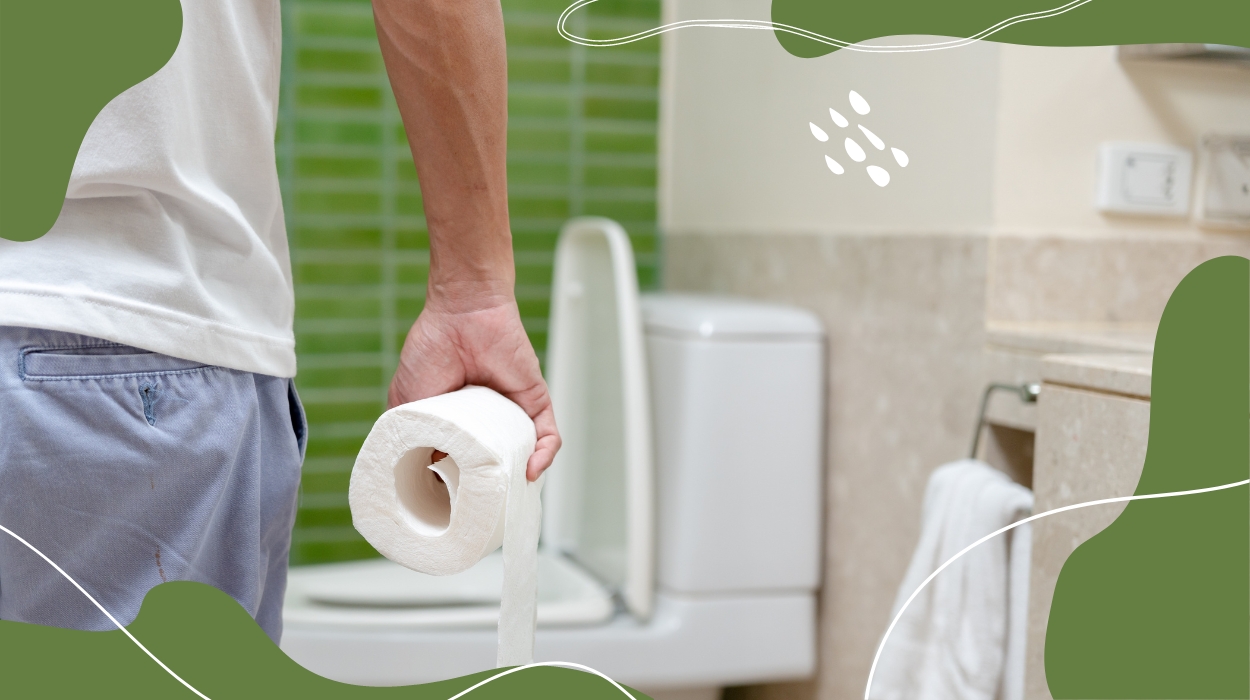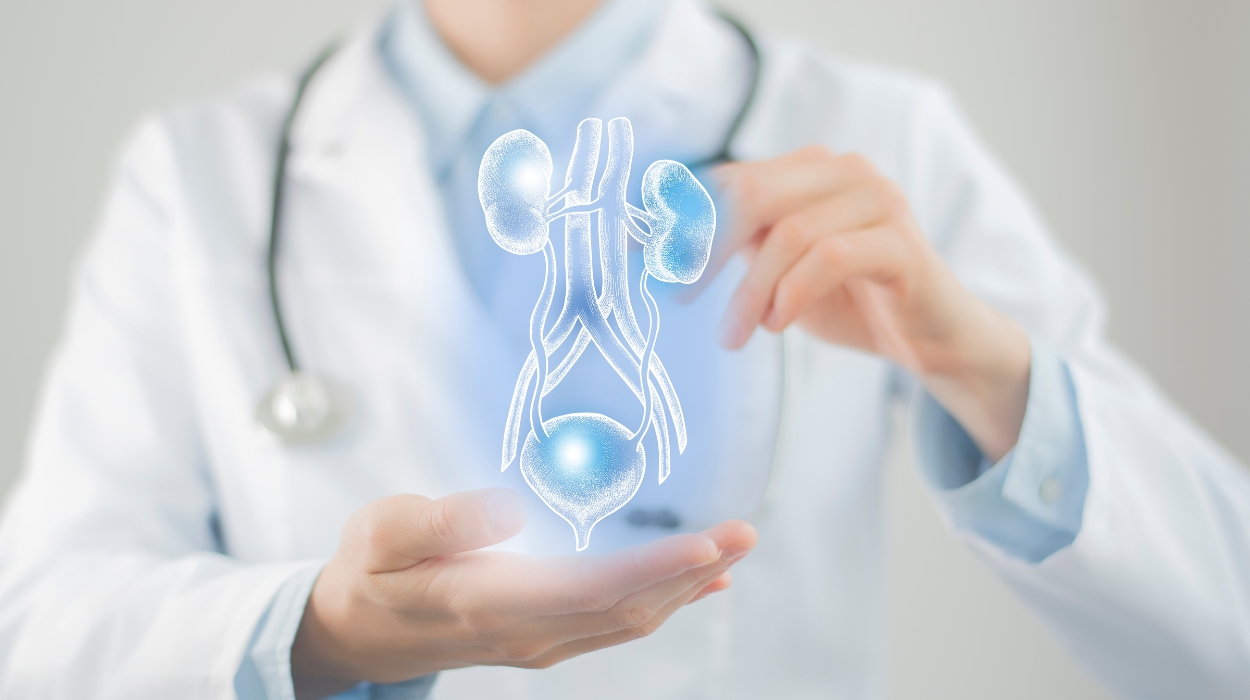 Expert's opinion
Expert's opinion
Expert's opinion
The article is a subjective view on this topic written by writers specializing in medical writing.
It may reflect on a personal journey surrounding struggles with an illness or medical condition, involve product comparisons, diet considerations, or other health-related opinions.
Although the view is entirely that of the writer, it is based on academic experiences and scientific research they have conducted; it is fact-checked by a team of degreed medical experts, and validated by sources attached to the article.
The numbers in parenthesis (1,2,3) will take you to clickable links to related scientific papers.
Do You Lose Weight When You Pee? What You Should Know In 2024

Losing weight is tough, and many of us are willing to try or believe anything to meet our fitness goals faster.
Can peeing help you with weight loss? When trying to lose weight, we cannot emphasize the importance of drinking plenty of water daily enough—with tons of water inevitably comes more urine, which may be what makes this question such a popular one.
Do you pee a lot when losing weight? What’s the real connection to be found here? Let’s explore one of the most fascinating aspects of your entire body—the urinary system.
Do You Lose Weight When You Pee?
Does peeing help you lose weight? After urinating, you may notice you’ve lost at least a few ounces of water weight if you hop onto the scale right afterward. If we define “losing weight” as the metabolism of body tissue, however, no, peeing does not make you lose weight.
What do we mean when we say “the metabolism of body tissue”? Burning fat and even muscle mass, in the most basic sense.
When you are able to maintain a consistent calorie deficit, this negative energy balance[1] forces your body to fuel its daily goings-on with things like glycogen stores.[2] In the absence of energy stored in glycogen forms as useable carbohydrates or in our blood glucose levels, it then turns to muscle glycogen, which may not be ideal if you strive to minimize muscle loss throughout your weight loss journey.
Urination, on the other hand, has little to do with any of this. It’s a process of the kidneys and the bladder[3] – your urinary tract system. What does the urinary tract system do? What is its role within the body?
How The Urinary System Works, In Brief

Your kidneys are responsible for purifying your blood of toxins. One artery brings blood laden with metabolic products and toxic waste, filtering it through your kidneys. The transaction removes these impurities from your bloodstream and sends the filtered blood through a dedicated vein routing it back to the heart, where it continues its many duties throughout the body.
This waste has to go somewhere, and your urinary system pulls double duty as a storage facility for extra urine and a filtering station for toxins taken out of the blood. This “dirty water” is stored in the bladder. Once full, we express the toxins through the urethra as urine. It also separates the nutrients that you need from the waste that gets excreted.
Most of the weight that we lose when we pee consists of the water acting as a vehicle for all of the bad stuff the urinary system takes out of our blood supply. The weight of the toxins themselves will usually be negligible. You might notice a flatter tummy that appears to be less bloated if you haven’t peed all afternoon, but none of what has been lost can be considered “weight loss” in any intellectual way.
How Much Water Weight Do You Lose When You Pee?
This will depend a lot on how long it’s been since you’ve last urinated, how much liquid you’ve had to drink since the last time you passed urine, and other factors that may cause you to retain water instead of converting it immediately to urine, such as foods high in sodium.
If you urinate approximately 8 ounces of urine, for example, you will lose water weight of 236.56 mL, which will equate to around 0.52 pounds when you step back onto the scale. None of this weight loss will be fat cells or fat loss, of course. You will, in fact, experience “weight gain” the second you drink another 8 ounces of any beverage.
How Does Urine Help With Weight Loss?
What are some factors and lifestyle choices that make increased urination less likely, even when you’re drinking plenty of water?
- Hormonal imbalances
- Too much salt in your food
- Menstruation, pregnancy, and menopause
- Some types of medication
- A lack of daily physical activity
- Changes in altitude, such as flying on an airplane
In a general sense, you can maximize weight lost through urine by following the following best practices for your weight loss goals:
- You should stay hydrated at all times—in fact, drinking at least one liter of water per day[4] over the course of 12 months might actually help you lose more weight in the long run although two liters of hydrating water per day is recommended[5]
- Avoid adding tons of salt to your food and try to stay away from fast food, fried food, convenience food, and restaurant food that may be extremely high in sodium. The Dietary Guidelines for Americans[6] suggest limiting sodium to 2,300 milligrams per day.
- Use your urine color to self-diagnose dehydration or overhydration—aim for urine that is clear, pure, and pale yellow in color, and make a point to drink more water if you notice your urine is dark yellow
- Make sure you’re eating plenty of potassium and magnesium—bananas, sweet potatoes, and dark, leafy greens
Anybody serious about losing weight knows what an incredible resource a glass of cool, fresh water is. Worry less about how much “weight loss” you experience after peeing. Instead, focus on other, more relevant factors, such as diet, exercise routine, sleep, stress, and other health conditions.
Increased Urination And Losing Weight

Again, your calorie intake, your existing fat reserves, and your current body weight will all have much more to do with your ability to burn fat through diet and exercise. Your water intake, however, is absolutely vital to your weight loss program in so many ways[7]:
- It might be able to suppress your appetite
- It can replace caloric fares like juice, sugary soda, and coffee with milk
- Drinking water allows you to achieve a higher degree of athletic performance; have you ever tried exercising without your trusty water bottle?
- Drinking water facilitates the function of the urinary system outlined above, which ensures that toxins and impurities are not impeding anything going on below the surface
- The metabolism slows when we’re dehydrated, and so does lipolysis, the process by which our bodies actually utilize fat cells—drinking water throughout the day is the surest way to keep your body functioning actively and at its peak
Drinking enough water is completely relevant to fat loss, but this truly has more to do with the benefits of adequate water intake, not with the increased urination that follows as a result. Weight loss may not always be a straightforward goal, but there’s so much you can do to maximize your results.
+ 7 sources
Health Canal avoids using tertiary references. We have strict sourcing guidelines and rely on peer-reviewed studies, academic researches from medical associations and institutions. To ensure the accuracy of articles in Health Canal, you can read more about the editorial process here
- Strasser, B., Spreitzer, A. and Haber, P.S. (2007). Fat Loss Depends on Energy Deficit Only, Independently of the Method for Weight Loss. [online] 51(5), pp.428–432. doi:https://doi.org/10.1159/000111162.
- Galgani, J.E. and Ravussin, E. (2008). Energy metabolism, fuel selection and body weight regulation. [online] 32(S7), pp.S109–S119. doi:https://doi.org/10.1038/ijo.2008.246.
- Cortes GA;Flores JL (2022). Physiology, Urination. [online] Available at: https://pubmed.ncbi.nlm.nih.gov/32965852/.
- Dennis, E.S., Ana Laura Dengo, Comber, D.L., Flack, K.D., Jyoti Savla, Davy, K.P. and Davy, B.M. (2010). Water Consumption Increases Weight Loss During a Hypocaloric Diet Intervention in Middle-aged and Older Adults. [online] 18(2), pp.300–307. doi:https://doi.org/10.1038/oby.2009.235.
- Meinders AJ;Meinders AE (2023). [How much water do we really need to drink?]. Nederlands tijdschrift voor geneeskunde, [online] 154. Available at: https://pubmed.ncbi.nlm.nih.gov/20356431/.
- CDC (2023). Sodium Intake and Health. [online] Centers for Disease Control and Prevention. Available at: https://www.cdc.gov/salt/index.htm.
- CDC (2022). Water and Healthier Drinks . [online] Centers for Disease Control and Prevention. Available at: https://www.cdc.gov/healthyweight/healthy_eating/water-and-healthier-drinks.html.



